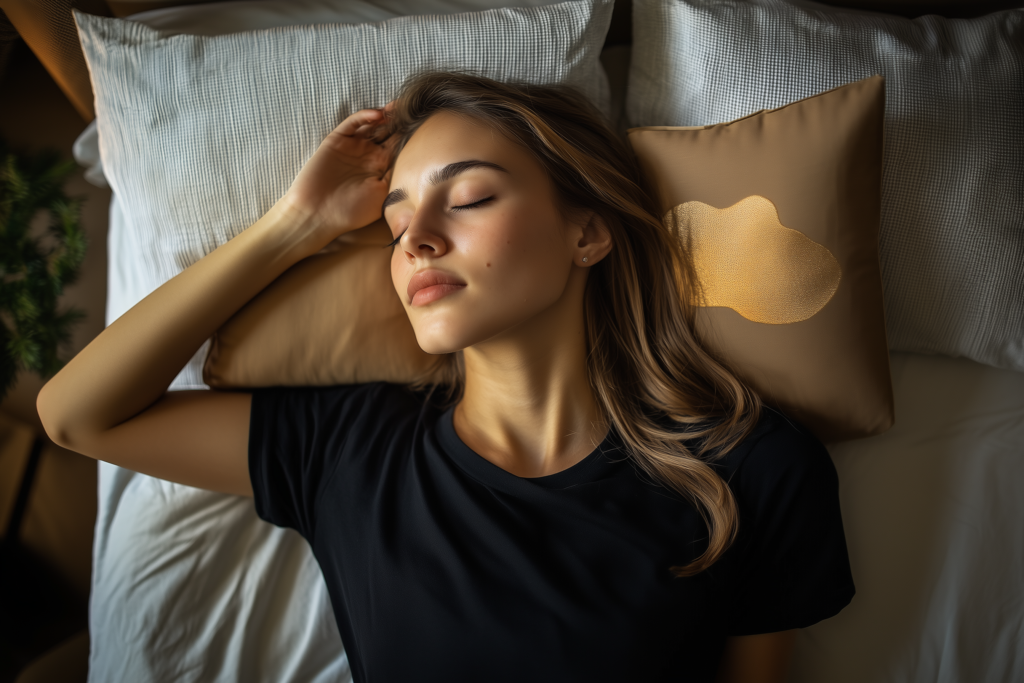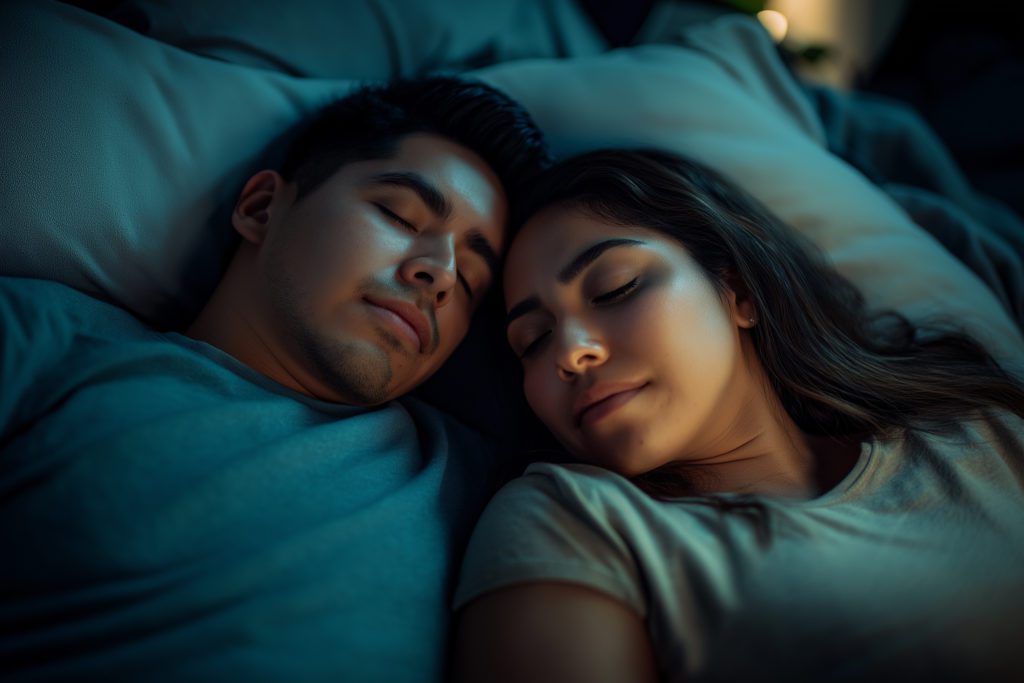
Exploring the Link Between Birth Control Pills and Sleep Disorders
A potential side effect of birth control pills is insomnia. Wondering if birth control pills are affecting your sleep? Here’s what the research says.

Millions of women in the United States use hormonal birth control pills for contraception. Birth control pills are an effective and simple way to help prevent pregnancy. They can also help manage symptoms of polycystic ovary syndrome (PCOS) and other health conditions. However, as with any medication, there are downsides.
Birth control pills are associated with a number of side effects, including weight gain, headaches, and sleep problems. Many women have quit birth control pills because of these issues.
Sleep is vital in maintaining your emotional and physical health. If your birth control pills prevent you from getting the precious rest your body so desperately needs, it can affect you in many ways.
Let’s take a closer look at the connection between birth control pills and sleep.
How Hormonal Birth Control Pills Work
Hormonal birth control pills contain synthetic hormones. They work by changing levels of progesterone and estrogen in the body. This stops ovulation and prevents pregnancy. Some birth control pills contain a combination of estrogen and progesterone while others contain only progesterone.
Birth Control and Sleep: Is There a Connection?
There is a link between oral contraceptives and sleep. Research backs this notion up, as well. A 2020 study, published in the Journal of Sleep Research asked 2,055 women between the ages of 18 and 40 years old to answer a questionnaire evaluating their sleep and hormonal birth control use. The survey found that women who were using hormonal contraception, including both combination and progesterone only pills, were more likely to suffer from daytime sleepiness and insomnia. Women taking progesterone only pills had a lower sleep duration.
How Do Birth Control Pills Affect Sleep?
So, what do the female hormones (estrogen and progesterone) have to do with sleep? It turns out that these hormones play a big role in sleep.
Estrogen helps maintain your circadian rhythm or 24-hour sleep-wake cycle. When something like birth control pills throw off your estrogen levels, it can impact your circadian rhythm. This can interfere with the release of the sleep hormone, melatonin.
One way in which hormonal birth control impacts your sleep is by interfering with thermoregulation. Thermoregulation is the process by which your body cools down and prepares for sleep. Your body naturally lowers it’s temperature as you start to fall asleep. But, progesterone can slightly increase your body temperature, which can make it harder to fall and stay asleep. The temperature rise is small, but it is enough to impact sleep.
Progersteone also has a natural sedative or calming effect. Low levels of progesterone have been associated with insomnia. In fact, when women are going through perimenopause, their progesterone levels begin to decline, and they often have trouble sleeping.
What Can You Do if You Think Birth Control Pills Are Affecting Your Sleep?
If you believe that your birth control pills are interfering with your sleep, there are a few things you can try.
Track Your Sleep
If you believe that birth control pills are impacting your sleep, track your sleep patterns and lifestyle factors including whether or not you have taken birth control pills that night to determine whether there is a possible connection. Then, when you notice changes, talk to your health care provider.
Pay Attention to When You Take Them
Take note of when you take birth control pills. The timing could be what’s interfering with your sleep. If you are having trouble sleeping, you might to talk to your doctor to determine whether or not taking your birth control pills at a different time (such as in the morning) could help.
Look at Other Things
Birth control pills may be a factor in why you are not getting a good night’s sleep. But, they are by no means the only factor. There are many different factors that influence sleep patterns, including:
- Caffeine and alcohol intake
- Bedroom environment
- Inconsistent sleep schedules
- Taking long naps late in the day
- Stress and mental health problems like depression (which affects more women than men)
- Physical health issues
- Sleep disorders like obstructive sleep apnea (OSA)
It can be diffiuclt to determine whether one of these issues is affecting your sleep or if your birth control pills are the culprit. Try to make changes to your sleep hygiene and see if that helps.
Avoid Combining Melatonin Supplements and Birth Control Pills
If you have trouble sleeping, your first impulse might be to try the sleep aid melatonin. It’s, after all, one of the most popular over the counter sleep supplements. However, taking melatonin supplements with birth control can enhance the effects of melatonin. A study, published in the European Journal of Clinical Pharmacology, examined the impact of taking melatonin and birth control pills at the same time. It was found that the pills increased the concentration of melatonin in the blood. While this might sound like it would be helpful, it can actually make you feel more tired or sluggish in the morning.
Talk to Your Doctor
If you have recently started taking birth control pills or changed your dose, it’s just possible that your body has just not yet adapted to them. Once you have taken them for a couple of months, the sleep problems may go away.
However, if it’s been a couple of months and you’ve tried the tips above and are still having sleep issues, make an appointment with your gynecologist or primary care provider. You may want to talk to them about trying a different type of birth control pill or even switching to a non-hormonal contraceptive, such as a condoms, a copper IUD, or cervical cap.
This Doesn’t Mean You Have to Stop Taking Birth Control Pills
Oral contraceptives affect everyone differently depending on metabolism and other factors. One person might experience certain side effects such as difficulty sleeping, while another might not have any issues with birth control pills. We all have unique biology.
For some people, The Pill may impact sleep, while for others, it doesn’t. If you like taking birth control pills, you don’t have to give them up just because they may impact sleep.

Written by
Emily Mendez
Emily Mendez is a former therapist and mental health author. She is one of the leading voices in mental health. Emily's writing has appeared in eCounseling, SonderMind, and more. Emily is frequently interviewed by Healthline, Fatherly, INSIDER, Family Circle, and other national media for her advice and expert opinion on the latest mental health topics.
Download Pillow
Get help
Press & News
Legal
Connect
X (Twitter)
Company
Copyright © Neybox Digital Ltd.



